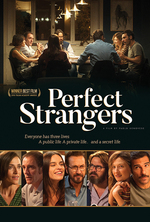Film Screening 4th August, 2017

Things to Come (L'avenir)
7:30 PM, 4th August, 2017
- M
- 102 mins
- 2016
- Mia Hansen-Løve
- Isabelle Huppert, André Marcon, Roman Kolinka, Édith Scob
Mia Hansen-Løve has directed two earlier films I absolutely løve (sorry): Father of My Children and Goodbye First Love. They seemingly have completely different subjects, and it was only recently I realised they’re about the same thing: people getting on with their lives after some form of abandonment.
In this film, Nathalie (Huppert), a philosophy lecturer, finds her husband is leaving her for another woman – c’est la vie, no drama, and in any case both parties are adult about it. But once alone, Nathalie also finds she’s being abandoned on other fronts. Her publisher is gradually becoming cooler, and she’s being edged out of the inner circle of academia, which is brought home to her most woundingly when a former student she’s deeply fond of ever so subtly confirms her feeling that she’s yesterday’s news.
This is not a film that leads up to a climax. It’s about the passage of time healing wounds, and perhaps creating new ones. If you’re translating this in your mind as ‘sleep-inducing’, you have the wrong idea: Hansen-Løve actually moves briskly through her material, and we’ve aged a little along with Nathalie before we realise it.
Henry Fitzgerald

Perfect Strangers (Perfetti sconosciuti)
9:22 PM, 4th August, 2017
- M
- 96 mins
- 2016
- Paolo Genovese
- Giuseppe Battiston, Anna Foglietta, Marco Giallini, Edoardo Leo
A group of friends in Rome are having a dinner party, when one of them to suggest a ‘fun’ game for the evening: they will all place their mobile phones on the table, and conduct all communication – texts, tweets, phone calls – in public, with everyone else at the table hearing or reading every word. All but one of the guests agree. And the one who doesn’t agree may well have the least to hide. Friendships and relationships will be strained to breaking point by the end of the evening, although new understandings will emerge.
Prolific director (and co-writer) Paolo Genovese is both professional and civilised in his approach: we don’t get convoluted French farce, and we don’t get bleakly misanthropic drama, either. There’s even one series of revelations (one character’s conversation with his daughter) that’s surprisingly sweet.
Side note: I think there are two possible interpretations of the film’s conclusion, and I’d like to collect a vote from anyone willing to stick around afterwards, to see how many people else made my initial (and likely mistaken) interpretation.
Henry Fitzgerald